Blog personnel - News - Religion - Scientology - Droits de l'Homme - Interviews - Livres - etc.
Le blog
Eric Roux
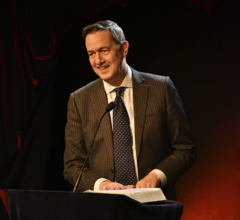
Ministre du culte de L'Eglise de Scientology, après 30 années passées dans le clergé de l'Eglise, Eric Roux est aujourd'hui le président de l'Union des Eglises de Scientology de France et Vice Président du Bureau Européen de L'Eglise de Scientology pour les affaires publiques et les droits de l'homme. Il est aussi Président élu du Conseil International de URI (United Religions Initiative) et le Président du European Interreligious Forum for Religious Freedom.
Ce blog est une initiative personnelle destinée aux gens qui s'intéressent à la spiritualité, ou à ceux qui souhaitent en apprendre plus sur la scientology, à ceux qui pensent que la liberté de conscience est un droit fondamental qui mérite d'être défendu, à mes coreligionnaires ou encore à ceux qui sont curieux...
Ce blog est une initiative personnelle destinée aux gens qui s'intéressent à la spiritualité, ou à ceux qui souhaitent en apprendre plus sur la scientology, à ceux qui pensent que la liberté de conscience est un droit fondamental qui mérite d'être défendu, à mes coreligionnaires ou encore à ceux qui sont curieux...
Galerie (cliquez dessus pour plus d'images)
Rubriques
Dernières notes
Archives
Sites de Scientologie
Association paraînées par l'Eglise de Scientologie
Liberté de Conscience
11/05/2016
Le 22 mars, j'étais invité par l'International Religious Freedom Roundtable à Washington pour intervenir dans le locaux du congrès américain lors d'un panel sur la liberté religieuse et le terrorisme en Europe. Sur la photo je partage la scène avec Brian J. Grim, Engy Abdelkader, et Timothy Head, tandis que dans la salle de nombreux congressmen de tous bords sont là, ainsi que des membres du Département d'Etat, de USCIRF (US Commission on International Religious Freedom), des organisations de défense des droits de l'homme, des militaires et de nombreux leaders religieux.
J'ai aussi assisté à la remise à la Congresswoman démocrate Anna Eshoo et au républicain Marco Rubio de leur trophée pour le prix Thomas Jefferson de la Liberté de Religion à l'International, et ai pu échanger entre autres avec Rabbi David Saperstein, Ambassadeur pour la liberté de religion à l'international au Département d'Etat américain.
Voici le texte de mon intervention en anglais :
Ladies and gentlemen, distinguished guests,
The Paris attacks have been a rude awakening for Europe. I won’t speak here about the way French authorities, as well as other European countries, are now dealing with the security of European citizens, unless it touches directly on religious freedom.
So the first question would be: is there something to say about religious freedom, in connection with the way European political forces deal with ISIS and terrorism in France and around? And the answer is unfortunately yes.
First of all, may I speak of circumstances preceding the attacks? I do not like to criticize the work of the police forces as they usually do good work, more often than not, and we too often stress the bad work. However, one point is too gross to be left aside. And this point is the use of police forces, as well as secret service forces, to monitor, harass and suppress wrong targets.
Indeed, for years, Western Democracies like France, Belgium and Germany, as well as repressive regimes, have been using secret services, police forces and government agencies to intensively monitor new religious movements targeted as “sects”. This has been the case for more than three decades, and has monopolized many precious resources which should have been allocated to monitor and fight extremist radicalized groups.
A very striking example is Belgium. As reported recently by Lars Bove, a renowned investigative reporter in Belgium, in his book “State Security Secrets”, Belgian State Security has been monitoring religious minorities for 40 years, with a full service dedicated to it, while it was going through a budget crisis and lacking security personnel and monetary resources. They focused on Scientology, Yogis, Evangelical Christians, and other peaceful religions or philosophies. Their investigation triggered very strong attacks against this Church for more than 30 years, leading directly to a criminal investigation that lasted for 18 years against twelve scientologists and 2 branches of the Church. These investigations were also done by the anti-terrorist cell of the Belgian Police who spent 18 years fabricating the case.
After these 18 years, 10 days ago, the Brussels Criminal Court acquitted all the defendants and strongly criticized the way the Prosecutor, State Security and the anti-terrorist cell had tried to convict a peaceful religious philosophy without any evidence of wrongdoing by the defendants. Perhaps most importantly, this case poses a problem as regards the resources that have been invested. A case like this one had to cost the Belgian State many millions of Euros and hundreds of thousands of hours of human resources, in order to perform the monitoring, the creation of the 40, 000 pages that were in the case file, the raids that have been targeting the Church, etc. whether this was performed by the State Security, the antiterrorist cell of the Belgian Police, or the office of the Prosecutor. At the same time, Belgian terrorists’ cells working with ISIS and other extremist groups slipped through the net and developed in the heart of Brussels under the radar.
The same thing occurred in Germany, where the Hamburg terror cell that played a key role in the 911 Attacks also developed under the radar while security forces were wasting resources monitoring peaceful groups.
I won’t go further into details and other examples of wasted resources that intruded on religious freedom and at the same time undermined the critical task of monitoring possible terrorists cells, but as a matter of fact, it can be said that it has existed in various European Countries, a wrong targeting that bears the weight, at least in part, of the failure to prevent the Paris attacks, or if we want to say it more gently, that did not help by allocating resources to the monitoring of peaceful religious movements while resources in general were lacking whether it was human resources or financial resources.
In terms of policy, it is obvious to me that the countries that are engaged in this kind of wrong targeting have to change their policies, stop monitoring peaceful religious groups and reallocate these wrongly allotted resources to the correct targets. According to the Belgian media, Belgium has recently reviewed its priorities in terms of national security and has determined that so-called “sects” will no longer be a priority. If this is true, it is a good sign for the country and a long overdue but correct change.
Now, as regards the way European States deal with the “after attacks” and religious freedom, there is also a lot to say.
As a matter of fact, after the Charlie Hebdo attacks, there has been a rise in anti-Semitism as well as Islamophobia in Europe, sometimes the first leading to the second and vice-versa. I can say without too much doubt that both are linked, and that the more anti-Semitism rises, the more islamophobia rises too, and the more islamophobia rises, the more anti-Semitism increases, so that everyone has a strong interest to see them both dealt with and decreasing. Moreover, the reality is that these two issues are harmful as they can reinforce feelings of exclusion, which plays into ISIS hands, as it’s easier to recruit marginalized and excluded people rather than individuals who feel well accepted and respected in their own countries.
It would be inaccurate to say that European governments do not take a stand against anti-Semitism and Islamophobia in general. Apart from occasional blunders, most governments condemn anti-religious acts as well as anti-Semitic and Anti-Islamic hate speech in their countries. Many governments have taken measures to protect Synagogues and Mosques when needed, and have employed other counter-measures to fight against the twin plagues of anti-Semitism and Islamophobia.
Civil society also has taken great initiatives all over Europe. Interfaith groups have been strongly active to fight against prejudice, educate people on Human Rights, and create a climate of tolerance and understanding amongst religious communities.
However, in my opinion, while Governmental and Civil Society both have tried to play their role in confronting anti-Semitism, Islamophobia and religious prejudice, what is lacking in many European countries is a culture of cooperation between Civil Society and governmental bodies, as well as between Civil Society and police forces on the ground. When I speak of Civil Society, I do include the religious groups themselves, religious communities of all faiths and their ministers.
It is not a secret that ISIS recruitment in Europe is done amongst a population which is not in itself the most religious one, but they are recruiting their best slaves amongst already criminal individuals, whether in districts where criminality is high or directly in prisons. The answer by governments is, of course, investigation and measures to facilitate the work of police and intelligence services in order to identify potential terrorists, which is very understandable. However, this sometimes gives the impression that Muslims in general are targeted, whether it’s true or not. Moreover, while these measures can be necessary in order to protect European citizens, this does not resolve the factor of exclusion added to that of criminality, and can even reinforce both of these by creating a climate of general repression with no tackling of the underlying issues.
It seems to me that the best way to tackle these issues would be to involve Civil Society, including churches, their ministers, interfaith groups and the like, much more on the ground. Having police working with religious leaders and willing NGOs in the problematic districts would enhance the response of the population to what is aimed at as regards cutting the power of ISIS amongst young criminals. Even organizing coordination meetings at local levels, between local authorities and any civil society group that has the goodwill to act, would lead to a greatest impact of all initiatives to have anti-religious prejudice combatted and overcome.
Unfortunately, many European governments (it may be less true in North-European countries as well as in UK) have a culture of separating their activities from those of NGOs and goodwill grassroots initiatives. They have embraced the concept that a strong government must not mingle with religions (except when they are big majority religions) or with human rights groups, because the government is the one who needs to control everything without asking the help of Civil Society. This monopolistic attitude is wasting some of the most driving forces in Europe, and may discourage the goodwill of citizens who would otherwise be much more active in the field.
The result is also a feeling of being excluded by the State for many members of religious minorities, a reinforced ostracism towards Muslims at large, a rise in religious tension between communities, and a rise of hostility against religions in Europe, affecting religious freedom in many ways.
This can change. More than a change in policy, I think that an exchange of good practices with European governments, proposals through diplomatic lines to discuss how cooperation between civil society, religious groups and governments can help create an inclusive climate for all denominations. This kind of an inclusive exchange would combat prejudice and exclusion as well as criminality, the three key elements in the breeding ground for ISIS recruitment.
In my opinion and the opinion of members of other religious groups I work with, a close and constructive alliance between Civil Society organizations and religious communities vis a vis governments is key to improving the environment of religious tolerance and security in Europe.
Voici le texte de mon intervention en anglais :
Ladies and gentlemen, distinguished guests,
The Paris attacks have been a rude awakening for Europe. I won’t speak here about the way French authorities, as well as other European countries, are now dealing with the security of European citizens, unless it touches directly on religious freedom.
So the first question would be: is there something to say about religious freedom, in connection with the way European political forces deal with ISIS and terrorism in France and around? And the answer is unfortunately yes.
First of all, may I speak of circumstances preceding the attacks? I do not like to criticize the work of the police forces as they usually do good work, more often than not, and we too often stress the bad work. However, one point is too gross to be left aside. And this point is the use of police forces, as well as secret service forces, to monitor, harass and suppress wrong targets.
Indeed, for years, Western Democracies like France, Belgium and Germany, as well as repressive regimes, have been using secret services, police forces and government agencies to intensively monitor new religious movements targeted as “sects”. This has been the case for more than three decades, and has monopolized many precious resources which should have been allocated to monitor and fight extremist radicalized groups.
A very striking example is Belgium. As reported recently by Lars Bove, a renowned investigative reporter in Belgium, in his book “State Security Secrets”, Belgian State Security has been monitoring religious minorities for 40 years, with a full service dedicated to it, while it was going through a budget crisis and lacking security personnel and monetary resources. They focused on Scientology, Yogis, Evangelical Christians, and other peaceful religions or philosophies. Their investigation triggered very strong attacks against this Church for more than 30 years, leading directly to a criminal investigation that lasted for 18 years against twelve scientologists and 2 branches of the Church. These investigations were also done by the anti-terrorist cell of the Belgian Police who spent 18 years fabricating the case.
After these 18 years, 10 days ago, the Brussels Criminal Court acquitted all the defendants and strongly criticized the way the Prosecutor, State Security and the anti-terrorist cell had tried to convict a peaceful religious philosophy without any evidence of wrongdoing by the defendants. Perhaps most importantly, this case poses a problem as regards the resources that have been invested. A case like this one had to cost the Belgian State many millions of Euros and hundreds of thousands of hours of human resources, in order to perform the monitoring, the creation of the 40, 000 pages that were in the case file, the raids that have been targeting the Church, etc. whether this was performed by the State Security, the antiterrorist cell of the Belgian Police, or the office of the Prosecutor. At the same time, Belgian terrorists’ cells working with ISIS and other extremist groups slipped through the net and developed in the heart of Brussels under the radar.
The same thing occurred in Germany, where the Hamburg terror cell that played a key role in the 911 Attacks also developed under the radar while security forces were wasting resources monitoring peaceful groups.
I won’t go further into details and other examples of wasted resources that intruded on religious freedom and at the same time undermined the critical task of monitoring possible terrorists cells, but as a matter of fact, it can be said that it has existed in various European Countries, a wrong targeting that bears the weight, at least in part, of the failure to prevent the Paris attacks, or if we want to say it more gently, that did not help by allocating resources to the monitoring of peaceful religious movements while resources in general were lacking whether it was human resources or financial resources.
In terms of policy, it is obvious to me that the countries that are engaged in this kind of wrong targeting have to change their policies, stop monitoring peaceful religious groups and reallocate these wrongly allotted resources to the correct targets. According to the Belgian media, Belgium has recently reviewed its priorities in terms of national security and has determined that so-called “sects” will no longer be a priority. If this is true, it is a good sign for the country and a long overdue but correct change.
Now, as regards the way European States deal with the “after attacks” and religious freedom, there is also a lot to say.
As a matter of fact, after the Charlie Hebdo attacks, there has been a rise in anti-Semitism as well as Islamophobia in Europe, sometimes the first leading to the second and vice-versa. I can say without too much doubt that both are linked, and that the more anti-Semitism rises, the more islamophobia rises too, and the more islamophobia rises, the more anti-Semitism increases, so that everyone has a strong interest to see them both dealt with and decreasing. Moreover, the reality is that these two issues are harmful as they can reinforce feelings of exclusion, which plays into ISIS hands, as it’s easier to recruit marginalized and excluded people rather than individuals who feel well accepted and respected in their own countries.
It would be inaccurate to say that European governments do not take a stand against anti-Semitism and Islamophobia in general. Apart from occasional blunders, most governments condemn anti-religious acts as well as anti-Semitic and Anti-Islamic hate speech in their countries. Many governments have taken measures to protect Synagogues and Mosques when needed, and have employed other counter-measures to fight against the twin plagues of anti-Semitism and Islamophobia.
Civil society also has taken great initiatives all over Europe. Interfaith groups have been strongly active to fight against prejudice, educate people on Human Rights, and create a climate of tolerance and understanding amongst religious communities.
However, in my opinion, while Governmental and Civil Society both have tried to play their role in confronting anti-Semitism, Islamophobia and religious prejudice, what is lacking in many European countries is a culture of cooperation between Civil Society and governmental bodies, as well as between Civil Society and police forces on the ground. When I speak of Civil Society, I do include the religious groups themselves, religious communities of all faiths and their ministers.
It is not a secret that ISIS recruitment in Europe is done amongst a population which is not in itself the most religious one, but they are recruiting their best slaves amongst already criminal individuals, whether in districts where criminality is high or directly in prisons. The answer by governments is, of course, investigation and measures to facilitate the work of police and intelligence services in order to identify potential terrorists, which is very understandable. However, this sometimes gives the impression that Muslims in general are targeted, whether it’s true or not. Moreover, while these measures can be necessary in order to protect European citizens, this does not resolve the factor of exclusion added to that of criminality, and can even reinforce both of these by creating a climate of general repression with no tackling of the underlying issues.
It seems to me that the best way to tackle these issues would be to involve Civil Society, including churches, their ministers, interfaith groups and the like, much more on the ground. Having police working with religious leaders and willing NGOs in the problematic districts would enhance the response of the population to what is aimed at as regards cutting the power of ISIS amongst young criminals. Even organizing coordination meetings at local levels, between local authorities and any civil society group that has the goodwill to act, would lead to a greatest impact of all initiatives to have anti-religious prejudice combatted and overcome.
Unfortunately, many European governments (it may be less true in North-European countries as well as in UK) have a culture of separating their activities from those of NGOs and goodwill grassroots initiatives. They have embraced the concept that a strong government must not mingle with religions (except when they are big majority religions) or with human rights groups, because the government is the one who needs to control everything without asking the help of Civil Society. This monopolistic attitude is wasting some of the most driving forces in Europe, and may discourage the goodwill of citizens who would otherwise be much more active in the field.
The result is also a feeling of being excluded by the State for many members of religious minorities, a reinforced ostracism towards Muslims at large, a rise in religious tension between communities, and a rise of hostility against religions in Europe, affecting religious freedom in many ways.
This can change. More than a change in policy, I think that an exchange of good practices with European governments, proposals through diplomatic lines to discuss how cooperation between civil society, religious groups and governments can help create an inclusive climate for all denominations. This kind of an inclusive exchange would combat prejudice and exclusion as well as criminality, the three key elements in the breeding ground for ISIS recruitment.
In my opinion and the opinion of members of other religious groups I work with, a close and constructive alliance between Civil Society organizations and religious communities vis a vis governments is key to improving the environment of religious tolerance and security in Europe.
Eric Roux
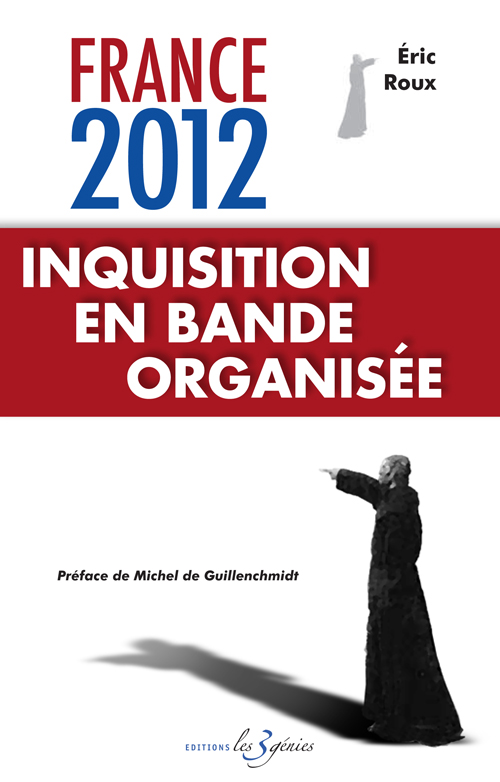
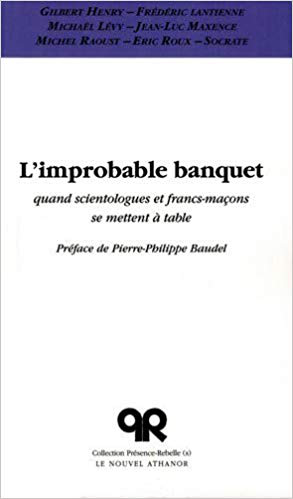


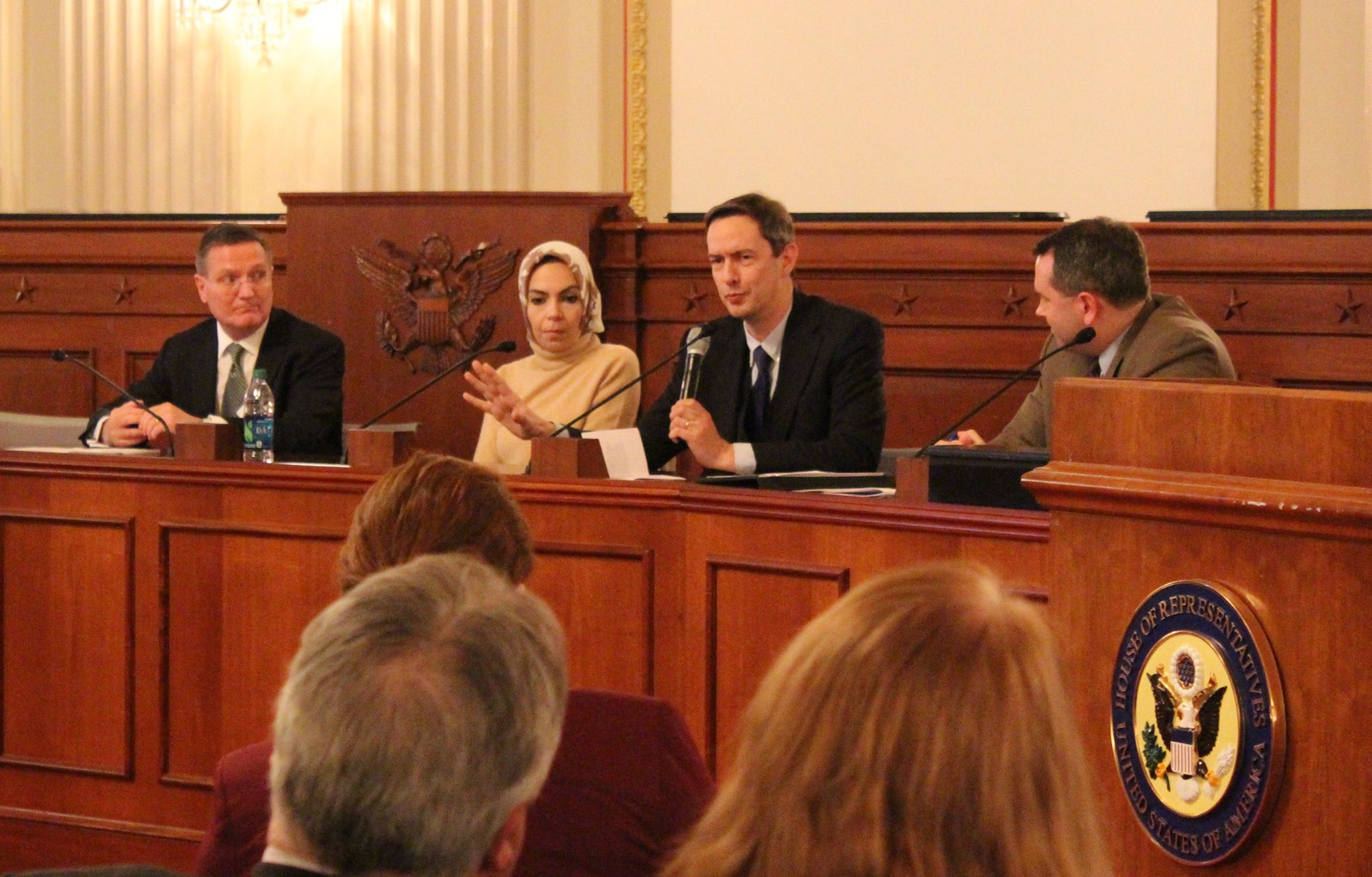
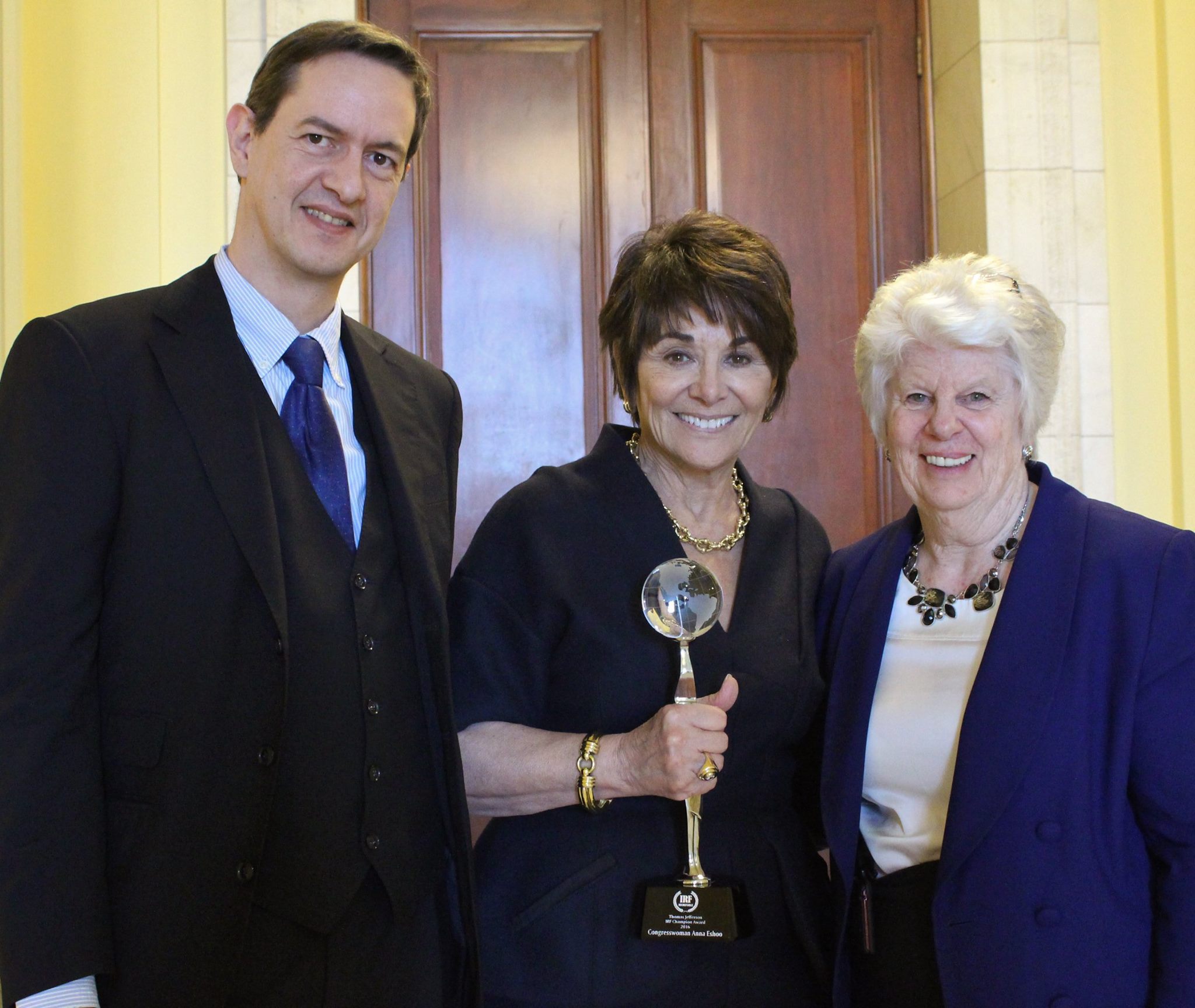
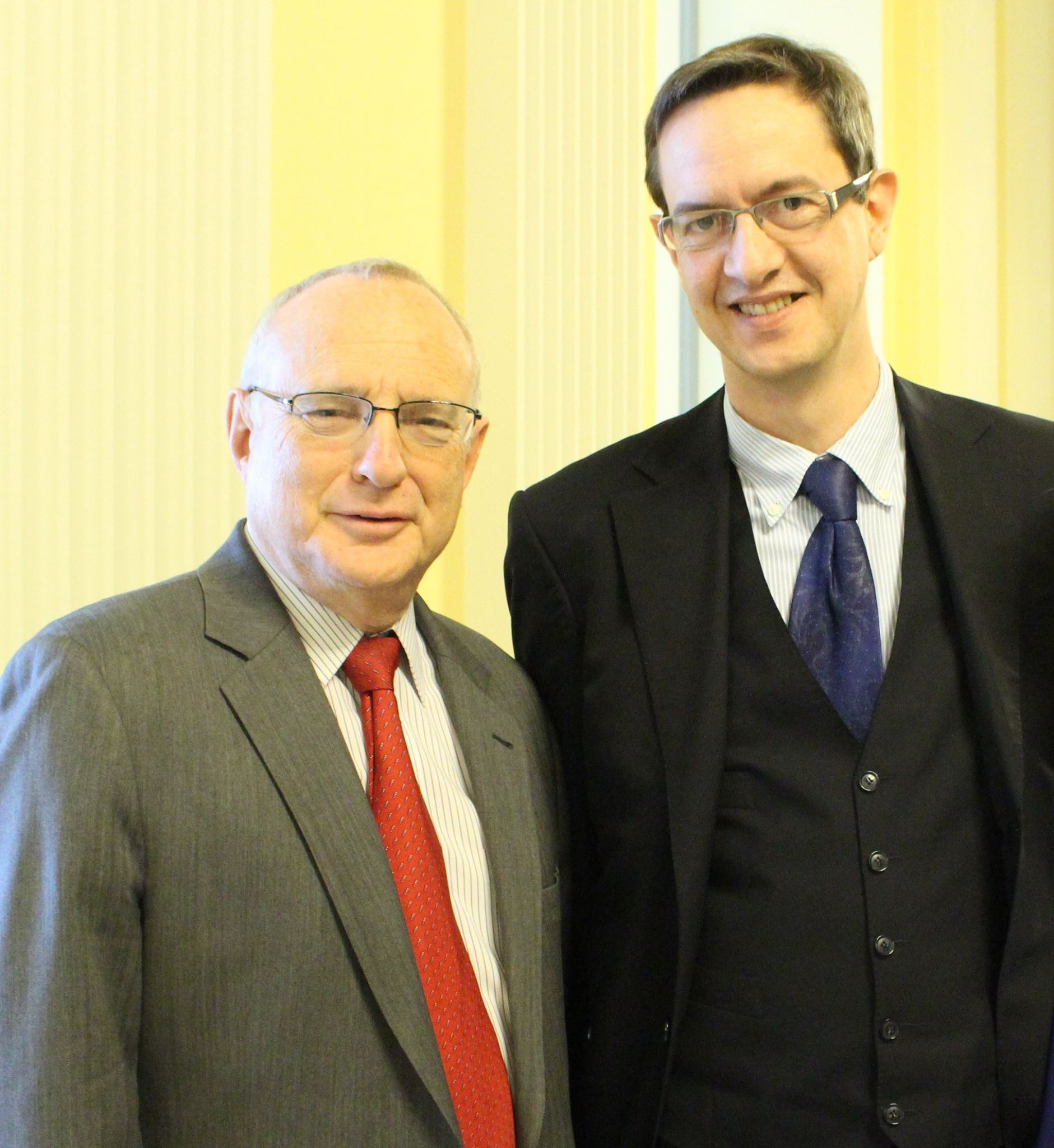
Liberté de conscience
Commentaires (0) | Permalien